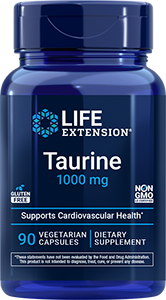
Newsletter
Newsletter
Getting More Vitamin E May Help Avoid Dementia

People who had a higher dietary intake of vitamin E or took oral vitamin E had a lower risk of developing dementia or Alzheimer’s disease, according to the results of a meta-analysis.
Compared with a low intake, consuming a higher amount of vitamin E decreased the risk of dementia by 21%. When the researchers analyzed studies that evaluated the risk of Alzheimer’s disease, high vitamin E intake was associated with a 22% reduction in risk. Individuals who took vitamin E had a 33% lower risk of Alzheimer’s disease than those who did not.1
“We found that either high dietary intake or taking oral vitamin E reduced the risk of dementia,” Rangyin Zhao and colleagues concluded. “We recommend that older adults should eat more foods rich in vitamin E or [take] oral vitamin E to prevent the development of dementia.”
The meta-analysis included 15 articles that evaluated the association between vitamin E intake and the risk of dementia among a total of 53,584 men and women. Nine articles reported the vitamin’s effect in Alzheimer’s disease and 7 articles reported the effects of vitamin E. The findings were published on August 1, 2022, in the journal Frontiers in Aging Neuroscience.
Products
Apply What You've Learned: Dementia
- Dementia is a decline in the ability to think, remember and reason. Alzheimer’s disease, dementia with Lewy bodies, vascular dementia and frontotemporal disorders are types of dementia, with Alzheimer’s disease being the most common form of the disorder among older individuals. People can have two or more types of dementia simultaneously.2
- While genetics can predispose individuals to develop dementia, lifestyle also plays a role. Up to one third of dementia cases may be attributable to diabetes, smoking, high blood pressure, being overweight or obese, unhealthy cholesterol levels and/or cardiovascular diseases.3 All of these factors are considered to be modifiable.
- People who eat a Mediterranean diet are less likely to be diagnosed with Alzheimer’s disease (as well as other diseases such as Parkinson’s).4 This diet emphasizes vegetables, whole grains, legumes, nuts, fruits, fish, seafood and unsaturated fats such as olive oil, while limiting intake of red meat, saturated fats and sweets.2
- If you are concerned about your memory or reasoning skills, consult your physician. You may be referred to a specialist who can recommend specific tests that evaluate cognitive function and help your practitioner provide a diagnosis.
References
- Zhao R et al. Front Aging Neurosci. 2022 Aug 1;14:955878.
- “What Is Dementia? Symptoms, Types, and Diagnosis.” National Institutes of Health. National Institute on Aging. 2021 Jul 2. https://www.nia.nih.gov/health/what-is-dementia
- de Bruijn RFAG et al. BMC Med. 2015 Jul 21;13:132.
- Demarin V et al. Acta Clin Croat. 2011 Mar;50(1):67-77.
Featured Life Extension Magazine® Article
Anti-Aging Properties of Carnosine, by Jackson Riley
A recently published review of over 1,000 studies defined carnosine as “a molecule with multimodal mechanisms of action." Carnosine is a compound that helps reduce glycation, which occurs when glucose in the body attaches to proteins, fats or DNA to form damaging advanced glycation end products (AGEs). Not surprisingly, glycation is more common among people with high glucose and is responsible for some of the adverse effects of diabetes. In fact, the hemoglobin A1c test that is used to evaluate long term glucose control in diabetics is a measure of glycation.
Carnosine not only fights glycation, but also helps lower oxidative stress and chronic inflammation: two other underlying causes of chronic disease and premature aging.
Read Full Article
What's Hot
Health Concern
Study finds lithium users had lower dementia risk compared to nonusers
A study reported on March 17, 2002 in PLoS Medicine revealed a significantly lower risk of dementia, including vascular dementia and Alzheimer disease, among men and women who were prescribed lithium, commonly used in the treatment of bipolar disorder.

Alzheimer's Disease
Natural interventions such as Huperzine A and lipoic acid may help protect cognitive function and promote brain health.
Related Life Extension Magazine® Articles

Lower Blood Pressure Slashes Dementia Risk
New data confirms that elevated blood pressure damages not only the heart but also the brain. These findings make it imperative to achieve optimal blood pressure control to reduce cognitive decline and dementia risk.

In The News: Vitamin C and E Lowers Risk of Cognitive Decline
Vitamins C and E reduce dementia risk; fast-food availability linked to risk of diabetes; resveratrol helps control diabetes; NAD+ may improve cognitive function.
Wellness U
Knowledge is power, especially when it comes to your health. Register to sign up for FREE Wellness U online workshops...so you can live your healthiest life! Workshops include Personalizing Your Healthy Supplement Routine, The Power of Probiotics, Eating for Energy and more.
Learn More
Life Extension Magazine® Issue Now Online
A remarkable number of healthy-longevity findings have been published over the past 18 months.




